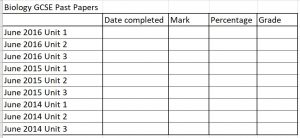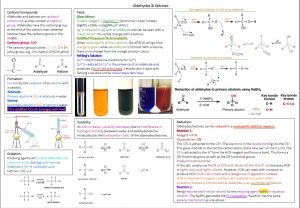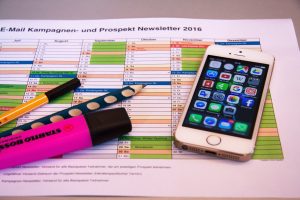

Having recently completed my A Levels and achieving 3 A*s, I’ve decided to share some of my revision tips that worked for me and hopefully they’ll work for you too!
Many people use past papers as part of their revision, but how many are using them effectively?
Firstly you need to create a list of all the past papers available for the subject you’re revising. For example, search ‘AQA Biology GCSE Past Papers’ on Google, if you don’t know the exam board you’re using then ask your teacher. It can be an innovative idea to create a table with each paper available so you can tick them off as you go along, helping you to see your progress.

Complete about 10/15 minutes of the paper (not suitable for essay questions) or a handful of questions. Use a different coloured pen and mark the completed questions. It’s important to annotate any corrections required using the exact wording from the mark scheme.
On a separate piece of paper, write out any questions you have dropped marks on. Continue to complete the rest of the paper using this method. Once you have finished, go back to the list of questions you have written out on the separate piece of paper and answer underneath without looking at the mark scheme. Hopefully, by learning from your mistakes you will be able to answer these much better a second-time round.
Find out the grade boundary for the paper and record your results. In the beginning, past papers will take a long time to complete as there will be lots of mistakes, this is great! More mistakes mean more room for improvement!
If you’re struggling with certain topics in the paper, it’s a good idea to look back at your revision guide and notes.
Posters are a fantastic way to consolidate your knowledge. After finishing a topic in class, my advice would be to create an A4/A3 poster with all the knowledge needed in note form. Use as many resources as possible: class notes, revision guides, websites, YouTube videos and the specification. Going through the specification for each topic is a great way to make sure you’re not missing out on any information – it tells you exactly what you need to know for your exam. These can be started right from the beginning of the year, so by the time exam season comes around, you’ll have a stack of revision posters ready. This technique helped me piece together all the information I’d been taught in class to see the bigger picture.
Posters can be made to suit you – whether handwritten using lots of colours or pictures; drawing out creative mind maps; or using a computer if you prefer. I personally made my posters on a computer, here is an example.

Revision cards are the answer to getting your family and friends involved in your revision, hopefully they’ll make it a little less tedious. I’ve found that the best way to use revision cards was to write out a simple question on one side and the answer on the other. This way, you could get a family member/friend to read the question out and check if you got the answer right. Recalling knowledge is a good foundation for answering exam questions. You could make separate bundles for different subjects and topics.

The specification for a subject is the long list of all the information and knowledge you need to learn for the exam. They vary between different exam boards so it’s important you know the exam board you’re learning. Try using this example to find yours online: ‘AQA English Language GCSE Specification’. When exam season comes, it’s a good idea to print off the whole specification and use it as a checklist. Highlight, annotate and draw pictures around the specification to help you revise. I can’t emphasise enough how important it is to know what’s in your specification! I used mine throughout the year to make sure I had learnt all the right things.

Post-it notes are useful to help remember small bits of information you regularly forget or get mixed up about. Stick them up around the house in places you regularly go past, maybe in your bedroom, the kitchen, even on a mirror in the bathroom! It would certainly make for some interesting decoration! Once you’ve learnt the information and it’s stuck in your mind, take down the post-it and replace it with a new one. To make it more interesting you could use lots of colours or pictures, maybe use different post-it note colours for different subjects?

Revising is certainly not the most fun activity, but unfortunately it has to be done! Productivity in your revision can be increased by having a good environment to work in.

There are plenty of study planners available online to help you organise your revision timetable – https://www.thestudentroom.co.uk/g/planner is one option you could try out. Or just printing out a weekly timetable and filling it in by hand is another great idea. I started my revision from September for my A levels and achieved 3 A*s, so starting early is never a bad idea. Personally, I found it hard to stick to revision timetables and I’ve tried a fair few times! If I couldn’t start on time for one reason or another, then I got a bit flustered and just didn’t start at all – not very helpful! My ‘plan’ was to not have a plan. When it was time to revise, I just sat down and worked through as much as I could do. I sometimes made a tick list for the day/week as to what I needed to do but didn’t set specific time-slots. This helped me feel more relaxed and less tied up in a timetable. However, this method is not for everyone as you need to be very motivated to begin with, you could try lots of different study plans and see which one works best for you. I remember watching a YouTube video about someone who revised for 8 hours a day – something I wasn’t even close to. If you’re capable of that then I’m very impressed at your self-discipline, it’ll certainly pay off! But you need to remember not to compare your revision strategies to others, as everyone works in different ways.
If you’re in college or sixth form, you need to use your free periods to do work. I could probably count on my hands how many frees I had that weren’t in the study centre. Even if I didn’t have a lesson first thing, I would still be in sixth form and working from as early as 7:30 during exam season (gross, I know!). I did this because I found it hard to work at home with so many distractions around so I’d stay late as well to do all my work and then when I went home I didn’t do any work at all.

Mixing up your revision resources will keep you from getting bored. There’s a whole host of revision videos at your fingertips, just get searching!

Have a look at the video in our rates of reaction blog.
